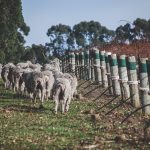The Australian Competition & Consumer Commission (ACCC) released its final report of its Winegrape Market Study on September 24th, with ten recommendations to “improve the efficiency and fairness” of winegrape markets in Australia’s warm climate grapegrowing regions, noting that several recommendations would benefit the entire Australian wine industry.
The immediate reactions from the wine industry have been mixed, with Australian Grape & Wine (AGW) “concerned the recommendations will create more problems than solutions” and that they will “threaten the long-term viability of businesses along the wine supply chain”; while Riverina Winegrape Growers (RWG) supports the majority of the recommendations, calling them “a significant step in the right direction” for local growers.
The ACCC has recommended all winemakers phase out long-term payment periods in their contracts with growers, and that large winemakers make payment within 30 days of grape delivery. In addition, the commission recommends all winemakers should review their standard form contracts with growers to ensure they do not include other terms likely to be unfair, according to the legal standard.
AGW considers the ACCC’s recommendations relating to contract terms will drive benefits across the wine supply chain.
“Unilateral rights for winemakers to vary agreements clearly put growers at a significant disadvantage,” commented ACCC deputy chair Mick Keogh.
To tackle the lack of pricing transparency, the ACCC is urging a significant change to the way grape prices are reported in the industry. Instead of the current ‘indicative pricing’ system which involves winemakers announcing their indicative prices in December, well after most grapegrowers have already signed contracts, the ACCC has recommended mandatory post-season price reporting by all major winemakers, with the prices paid to be publicly reported at the completion of each season.
“Under this proposal, grapegrowers will have detailed information available of actual prices paid by winemakers over the previous season, to inform their decision about which winemaker to supply in the coming season,” Keogh said.
However, AGW contends the report’s recommendations relating to payment terms and price transparency “could dampen competition and push down grape prices”.
“While the ACCC’s report presents a number of recommendations we will support, the recommendations relating to payment terms and price transparency create the potential for unintended consequences that erode recent market improvements,” said Tony Battaglene, chief executive of Australian Grape & Wine.
Jim Caddy of the Inland Wine Regions Alliance (IWRA) says, “unfortunately the ACCC have recommended some changes in regard to the timing of winery price offers which will make things worse for growers ability to negotiate fair prices. The recommendation in regard to price transparency will mean that there is no ability for growers to know what actual prices are on offer for the coming vintage in time to negotiate as wineries will not have to inform growers of the price offer until just before harvest”.
Caddy adds, “although the IWRA has and will continue to distribute comprehensive market information and price expectations to members, without early price offers from winemakers the growers will be in no position to negotiate in a timely manner. This will clearly increase the bargaining power imbalance between growers and winemakers that was identified by the ACCC and not in keeping with the ACCC’s aim of reducing this imbalance”.
The ACCC’s other recommendations include that:
- National uniform standards for testing and measuring grape sugar levels and colour be developed, to address concerns that current quality assessments lack transparency and can be manipulated. AGW considers the ACCC’s recommendations relating to quality assessment will drive benefits across the wine supply chain.
- Warm climate grower representative organisations should publicly report market trends analysis, with support from Wine Australia. Chief executive officer Brian Simpson says Riverina Winegrape Growers is pleased the ACCC has focused on the industry with particular reference to the Riverina, “that has been subjected to questionable practices since the lapsing of state regulations previously managed by the Wine Grapes Marketing Board”
- All winemakers sign the voluntary Australian Wine Industry Code of Conduct, and parts of this code be strengthened, including its process for dispute resolution. AGW will review the voluntary Wine Industry Code of Conduct to modernise its content and attract a greater number of signatories. Australian Grape & Wine commenced a comprehensive review of the existing code this year and expects a new code to be developed in time for the 2020 vintage. The IWRA will continue to work with AGW on an improved Code of Conduct, “however it is vital that a greater number of winemakers sign up to it”, Caddy urged.
Keogh says, “while our study focused on warm grapegrowing regions, several of our recommendations would benefit the entire Australian wine industry, and should be adopted more broadly”. On this specific focus on warm regions, AGW says the report seeks to “artificially divide the market by setting different rules for different geographic zones”. For example, grapes purchased from Victoria would be subject to much shorter payment terms than those from South Australia. “Additionally, the ACCC has not explained why Riverina grape-prices should be published, but Yarra Valley prices should not”, AGW says.
However, from the Riverina, Simpson says, “it is not surprising that a particular focus within the report has been toward the Riverina given the ongoing variations in payment terms to growers and a distinct lack of Code of Conduct signatories.”
The ACCC will review the industry’s progress in adopting its recommendations in 12-18 months. “If the industry does not take this opportunity to act, we are likely to recommend introducing a mandatory code. This action must include, at a minimum, all large winemakers signing and complying with the strengthened voluntary industry code,” Keogh said.
Murray Valley Winegrowers (MVW) is “pleased that after many years of campaigning on growers’ behalf there is finally some traction with regard to growers’ rights and interests”.
Overall, the IWRA is “pleased that the ACCC has acknowledged there are some parts of the industry which need updating, such as contractual obligation fairness, documenting and standardising vineyard assessments and winegrape testing methods, and standardising payment terms through a strengthened Code of Conduct”.
Tony Battaglene of AGW concluded, “We support strengthening relationships along the wine supply chain, but it is a mistake to unnecessarily intervene in a market that is experiencing its best conditions in many years.”
Photo: ACCC deputy chair Mick Keogh.





















